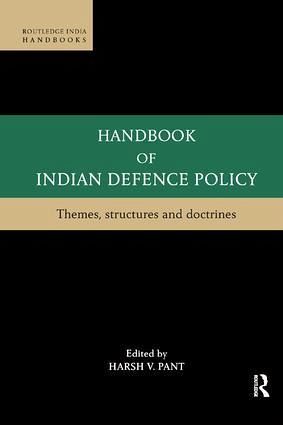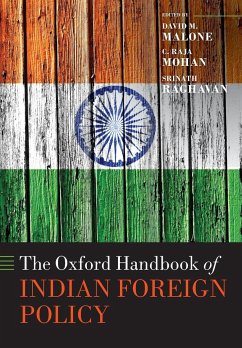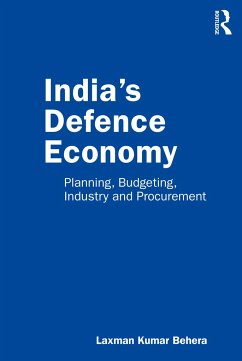
Handbook of Indian Defence Policy
Themes, Structures and Doctrines
Herausgegeben: Pant, Harsh V.
Versandkostenfrei!
Versandfertig in 1-2 Wochen
56,99 €
inkl. MwSt.

PAYBACK Punkte
28 °P sammeln!
India has the world's fourth largest military and one of the biggest defence budgets. It asserts its political and military profile in South Asia and the Indian Ocean region. The nation has been in the midst of an ambitious plan to modernize its largely Soviet-era arms since the late 1990s and has spent billions of dollars on latest high-tech military technology.This handbook:canvasses over 60 years of Indian defence policy and the major debates that have shaped it;discusses several key themes such as the origins of the modern armed forces in India; military doctrine and policy; internal and e...
India has the world's fourth largest military and one of the biggest defence budgets. It asserts its political and military profile in South Asia and the Indian Ocean region. The nation has been in the midst of an ambitious plan to modernize its largely Soviet-era arms since the late 1990s and has spent billions of dollars on latest high-tech military technology.
This handbook:
canvasses over 60 years of Indian defence policy and the major debates that have shaped it;
discusses several key themes such as the origins of the modern armed forces in India; military doctrine and policy; internal and external challenges; and nuclearization and its consequences;
includes contributions by well-known scholars, experts in the field and policymakers; and
provides an annotated bibliography for further research.
Presented in an accessible format, this lucidly written handbook will be an indispensable resource for scholars and researchers of security and defence studies, international relations and political science, as well as for government think tanks and policymakers.
This handbook:
canvasses over 60 years of Indian defence policy and the major debates that have shaped it;
discusses several key themes such as the origins of the modern armed forces in India; military doctrine and policy; internal and external challenges; and nuclearization and its consequences;
includes contributions by well-known scholars, experts in the field and policymakers; and
provides an annotated bibliography for further research.
Presented in an accessible format, this lucidly written handbook will be an indispensable resource for scholars and researchers of security and defence studies, international relations and political science, as well as for government think tanks and policymakers.














